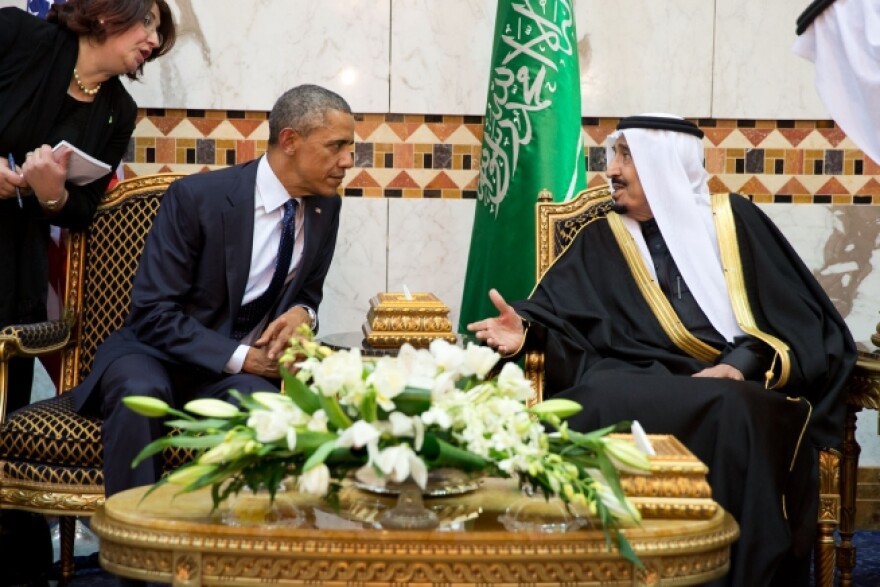On Friday, France’s foreign minister described talks over Syria’s future as entering a “danger zone.” Opposition leaders have stepped away from the negotiating table in Geneva, accusing the regime led by Syrian president Basharal-Assad of violating the cease-fire the U.S. and Russia painfully put together.
Representative of Assad’s regime might not even be at the negotiating table without Russia’s intervention. Airstrikes helped Syrian forces take back territory, put the rebels on their heel, and attack ISIS positions in the ancient city of Palmyra.
“Putin has his ‘Mission Accomplished’ moment. He said ‘I’m withdrawing troops.’ He’s shored up the Assad regime,” said Joshua Landis, the Director of the Center for Middle East Studies at the University of Oklahoma and the author of the blog Syria Comment.
“It established the fact that Russia is not going to let its interests be beaten,” Landis said.
But the United States views Russia as a pest, and doesn’t want to work with them. Landis says the U.S. wants to undermine Russia by getting ground-to-air missiles into Syria.
“That is a recipe for prolonged civil war,” Landis said. “Because America is not going to let Russia and Assad win. Russia is not going to let Russia lose, and arms are flowing into Syria. It’s perpetual civil war. The refugee problem, all the attendant problems will be ongoing for some time to come.”
Landis says 70 percent of Syrian Arabs live in areas free from conflict. But most young men wind up in the Syrian Army. Money will get you out, but there’s a general feeling of despair among the poorest residents.
“The dispiriting factor is that people look at these sorts of negotiations and they say, ‘’There’s never going to be peace in Syria, so I might as well go.’,” Landis said. “If they thought in two years it would be over, they would stay. But they don’t.”
Landis says he sees only two solutions – either one side emerging victorious, or a partitioned society. No one will let that happen though, because Russia, the United States, Iran, and Saudi Arabia all have proxy interests in the country. The other option would be dividing the country like what happened with the former Yugoslavia. But that could easily lead to another decade of war, and an eventual divisive stalemate with no real progress, similar to the Balkans.
“Perhaps down the road, like East and West Germany, they could come back together again,” Landis said. “But nobody wants that.”
Saudi Suspicion
President Obama visited Saudi Arabia this week, amid contention and difficulty over 28 pages dealing with the country in a report about the September 11 terrorist attacks. Landis says as President Obama continues to move the U.S. away from its relationship with Saudi Arabia, the Saudis feel abandoned.
“President Obama, in an Atlantic article, called the Gulf States ‘free riders.’ That they were getting all this defense for free, and that they needed to step up and do more,” Landis said. “He insulted them badly, and that comes on top of signing a nuclear deal with Iran.”
Landis said Obama wants to pull Iran out from under the crushing weight of banking sanctions as one of his presidential legacies. Landis also called Saudi Arabia a “millstone around the United States’ neck,” and says a bill pending in Congress to allow families of the 9/11 victims to sue the Saudi government could have significant economic implications.
“The Foreign Minister of Saudi Arabia said if they do that, we’re going to sell all the American debt that we hold – hundreds of millions of dollars of debt. And we will hurt the U.S. economy,” Landis said. “So that’s the environment in which Obama is trying to smooth some feathers.”
KGOU and World Views rely on voluntary contributions from readers and listeners to further its mission of public service with internationally focused reporting for Oklahoma and beyond. To contribute to our efforts, make your donation online, or contact our Membership department.





